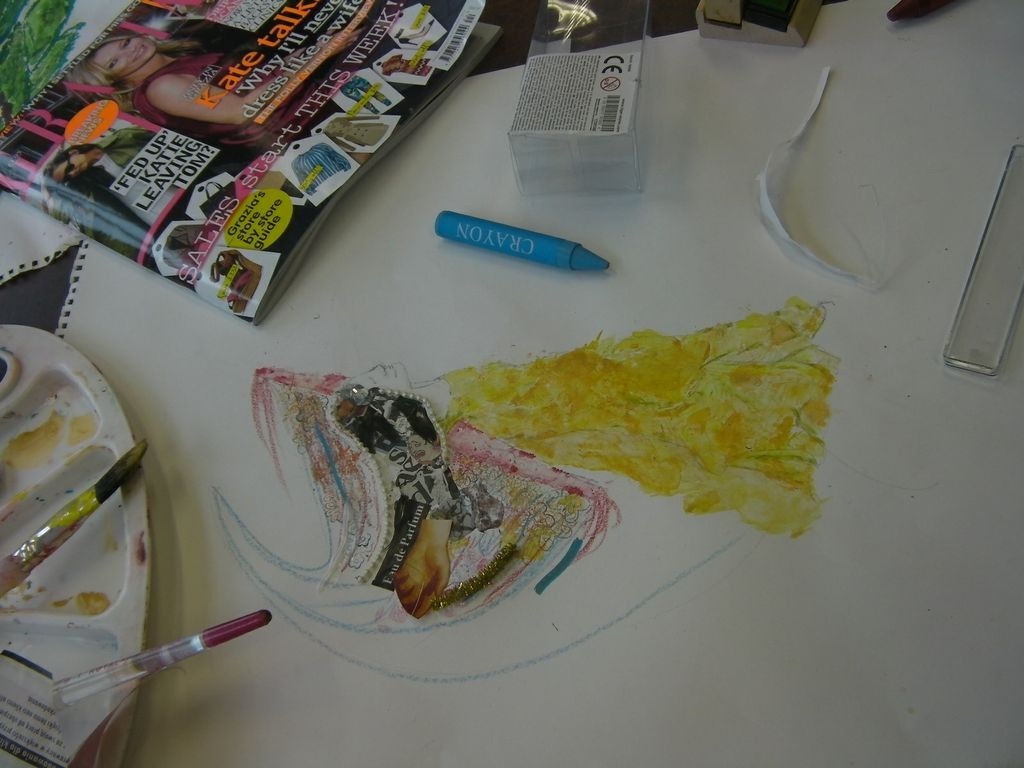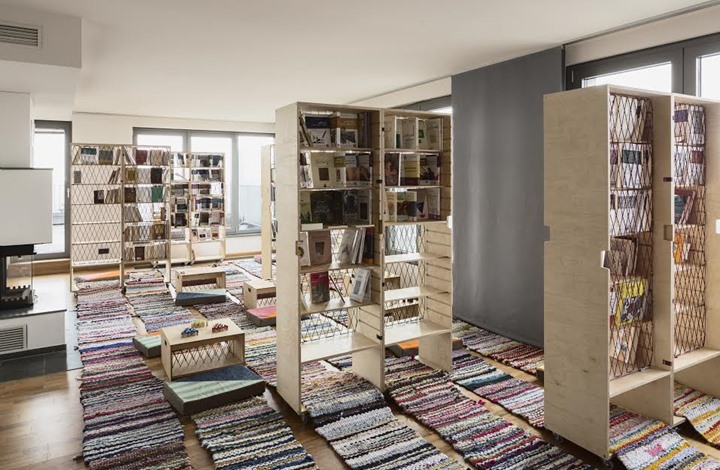
In 2012 and 2016, Cigdem Esin and Corinne Squire, together with a number of colleagues, ran two interconnected projects in East London and Calais refugee camp using multimodal narrative methodology. The aim of these projects was to facilitate the creation of visual, written, verbal and process narratives of participants’ lives, to open up a space for storytellers to explore the interrelations between personal and cultural resources. Similar methods were used in both projects but the processes differentiated in response to the context and group of participants.
The first study was conducted in 2012 with a small group of young British Muslim women in a community school in East London. The study team ran weekly workshops over a few months in which the participants were asked to create visual images about any aspect of their lives. Participants were provided with a range of image making resources such as acrylic paint, coloured pencils, crayons and craft material. The study team facilitated the workshops by engaging in conversations with the group about various aspects of everyday life such as life at school/university, families and friends. The participants were then interviewed about their images, their participation in the workshops and their interaction with other workshop participants/study team. An article by Cigdem Esin analyzing some of the narratives from this study could be viewed here.
The second project was carried out in 2016 with the residents of Calais refugee camp as an impact project. The aim was to use multimodal narrative methodology in order to constitute a space for refugee storytellers to tell their individual and collective life stories with links to their past, to their membership in refugee communities and to broader socio-cultural contexts in which their stories were circulated for various purposes. The project involved visual storytelling workshops in which participants were asked to create visual stories about themselves, their journey or their life in the refugee camp. These were one-off workshops due to the material conditions of the camp. The project team was engaged in conversations with the participants and asked them to produce short narratives about their images where possible. Some of the images from one of the visual storytelling workshops in the camp can be viewed here.
Researchers: Cigdem Esin and Corinne Squire, University of East London, Centre for Narrative Research
